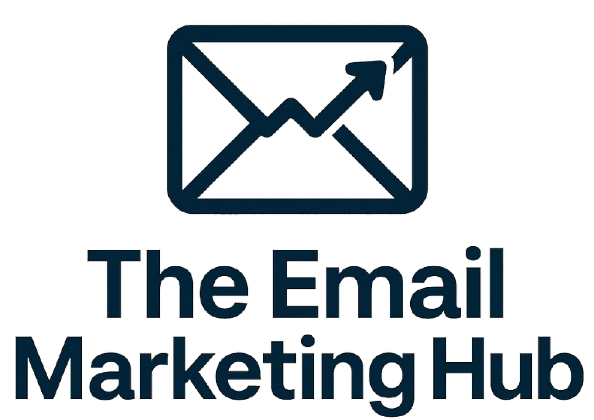It happens even to seasoned sales reps.
You pour your energy into a perfectly crafted pitch only to have it fall flat with someone who isn’t in a position to make a decision. Or you’re one of five other companies they’re considering, and you can only assume they went in a different direction because you never heard back after following up multiple times.
In many ways, sales still feels like a numbers game. The way customers buy has changed dramatically, but quotas haven’t.
Reaching real people has never been harder, and having them ghost you after several promising interactions is all too common.
This makes it all but impossible for sales reps to stay ahead without help, which is why many of them are turning to AI-powered tools to serve as trusted assistants in transforming sales enablement.
We covered this topic in a previous post a few years ago, but so much has changed that we felt it was necessary to expand on the role of AI in revolutionizing sales enablement.
We’ll talk about new ways sales reps are using AI agents to find new leads, answer initial questions from prospects and go beyond automating routine tasks to shaping strategy.
What AI in Sales Enablement Is and Why It Matters
Artificial intelligence in sales uses large language models and natural language processing to analyze data, provide strategic insights and improve sales processes across entire sales organizations.
It can be broadly defined to include everything from chatbots that answer questions to AI models or agents trained in concepts like prospecting, lead scoring or automating other manual tasks.
HubSpot’s State of AI in Sales report found more than half of sales professionals say AI makes it easier to scale activities that would otherwise be impossible.
However, AI adoption by sales teams has so far been slower than it has in marketing.
The report found 43% of sales professionals were using AI, compared to 74% of marketers surveyed. Still, it’s a significant jump from the previous year, where less than a quarter of salespeople (23%) reported regularly using AI.
Without AI, a sales rep’s to-do list continues to grow as many are expected to take on a more consultative role or recommending custom solutions and strategies to customers in addition to the routine tasks of prospecting, meeting and managing follow-up.
Here’s a closer look at how AI can assist at any stage.
How AI Transforms the Sales Enablement Process
AI is transforming every stage of the sales process, providing data driven insights from identifying prospects to standardizing quotes and coaching sales teams.
Generative AI, when properly trained and configured, helps personalize emails and proposals in seconds, while intelligent platforms build dynamic sales playbooks targeting specific industries or buyer behaviors. Chatbots and virtual assistants take on initial conversations, handing off warm leads so reps can focus on higher-value interactions.
Together, these innovations are reshaping how sales professionals connect with customers, yielding measurable performance improvements.
Here are some examples.
Refining Prospecting and Developing Ideal Customer Profiles
While sales reps typically focus on attracting more of the types of customers who have successfully generated revenue in the past, they might be overlooking prospects in other industries or regions they haven’t targeted before.
In the past, sales and marketing teams might have spent months (and significant capital) on market research to create ideal customer profiles, test messaging and identify companies and contacts that fit that criteria.
Now, AI can synthesize information from a variety of sources, including:
- Industry reports and publications
- CRM records
- Website behavior
- Social media engagement
- Prospect lists or sponsor lists from trade shows
Sales teams can use these details to quickly create ICPs that outline common pain points, preferred solutions, channels and messaging. They can use these to inform more nuanced sales strategies and create custom agents trained as these prospects so they can ask questions.
For instance, they could ask the agent to review a proposed offer and give feedback to improve it.
HubSpot’s AI Prospecting Agent takes this a step further by embedding these capabilities directly into the CRM.
Instead of manually analyzing data, reps can use the tool to uncover companies and contacts that align with their ICP, surface buying signals and suggest the best time or channel for outreach.
For example, the agent can flag a mid-sized company in a new vertical that recently visited your website and recommend a sales sequence.
By outsourcing some of – not all! – your initial research to AI, your team can find opportunities they might not have pursued before and focus their energy on building authentic relationships with prospects who stand out most.
Automating Sales Content Personalization
Personalization is essential to effective sales outreach, but doing it well can be time-consuming.
With AI tools connected to your CRM software, personalization becomes much more scalable. HubSpot’s Breeze Copilot is a great example of how AI is transforming sales enablement.
It can use customer behavior to recommend follow-up activities and help sales representatives personalize them.
If you have product demo videos hosted on your website, you can use Breeze to flag prospects who recently watched a specific video and generate a personalized follow-up offering them related content or next steps based on it.
Because Breeze Copilot is integrated directly into the CRM, it can factor in the prospect’s full history, including previous emails, website visits, form fills, and even notes from past sales calls. That means the content of each email feels less like a generic sequence and more like a thoughtful, ongoing conversation.
Over time, this kind of AI-powered personalization builds stronger customer relationships by making every touchpoint more relevant and timely.
Lead Scoring and Prioritizing Outreach
With HubSpot, your marketing and sales teams can establish lead scores and scoring frameworks with an AI model trained on your existing contacts.
You can analyze recent interactions from prospects to determine who is most likely to engage right now and get recommendations for the best way to approach them.
AI can draft personalized emails to prospects and even create workflows to send when recipients meet certain criteria, like visiting your pricing page.
In HubSpot’s State of AI Sales Report, 43% of reps said they use AI to write better sales scripts and emails.
Of course, it’s important to strike a balance between automation and authentic communication.
While you can train an AI model to write hundreds of introductory emails in your voice based on what actions a prospect has taken, they may not be as effective as one well-timed LinkedIn message to someone you just met at a conference.
Creating Intelligent Sales Playbooks
When it comes to developing consistent sales strategies and playbooks, there are a variety of AI-powered solutions that can support your team.
If your organization is already using HubSpot, you can use built-in playbooks to standardize language around discovery, pricing, competitor comparisons, and overcoming objections.
Outside of HubSpot, there are free platforms like Flight that use AI to generate sales playbooks or AI assistants built into other CRMs, such as Microsoft Copilot.
Using Conversational AI Chatbots To Respond to Inquiries
HubSpot’s newly expanded Customer Agent gives sales reps an intelligent partner that can support the entire customer journey, from discovery to support. Sales teams can train the agent with inputs from their own sales playbooks, ensuring it asks the right discovery questions to quickly and consistently qualify prospects.
When a lead first engages on your site, the agent can start with simple qualifying questions about company size or challenges, capturing valuable context before the rep joins the conversation.
When the visitor asks about pricing or custom solutions, the agent can refer them to a sales rep in their region and even provide a link to their calendar.
As the prospect moves further into the evaluation stage, the agent can provide instant answers to common product or pricing questions, drawing both from information the sales team supplies as well as from training on existing website content, case studies, and knowledge base articles. The same agent can step in to handle routine customer support tasks, such as troubleshooting a login issue or pointing a client toward relevant resources.
This frees reps to focus on higher-value conversations and new customer outreach.
By bridging discovery, traditional sales enablement and ongoing support, HubSpot’s Customer Agent helps ensure prospects and customers get timely, accurate answers while sales professionals dedicate their time to building relationships, closing deals and generating revenue.
Forecasting and Tracking Sales Enablement Metrics
Sales leaders and company stakeholders use AI-powered tools for more accurate sales forecasting, transforming it from a tedious, backward-looking exercise into a future-forward decision-making tool.
Instead of spending hours building spreadsheets, reps can generate custom reports with a simple natural language prompt like, “Which leads are most likely to close by the end of the month?” or “What are the top three reasons deals failed last quarter?”
One in three salespeople who use AI already rely on it for pipeline analysis and forecasting, according to the aforementioned HubSpot’s State of AI in Sales report.
AI scans CRM data, call notes and engagement metrics to deliver clear and confident answers and projections in seconds, allowing organizations to plan more accurately by highlighting sales velocity, pipeline health and win rates.
Improving Sales Coaching With AI
Coaching has always been one of the most effective ways to elevate a sales team, but it’s also one of the most difficult for managers to scale. Reviewing calls, providing feedback and tailoring guidance to each rep’s strengths and weaknesses takes time that many sales managers simply don’t have.
These are areas where AI can help provide templates and automate repetitive tasks.
Many sales reps already use AI tools like Zoom’s Smart AI Assistant or Fathom to summarize conversations. They can also use AI to analyze call transcripts or summaries, flagging moments when prospects raised objections or noting when a rep might have missed an opportunity to ask a deeper question. These insights give sales leaders the ability to provide highly targeted feedback based on real interactions, rather than relying on notes.
Instead of listening to hours of recordings, managers can zero in on the three or four key moments that matter most.
Beyond call reviews, AI also supports sales training by delivering real time feedback during live calls or generating personalized role-play scenarios based on historical data. Reps can practice improving their communication skills or refining their negotiation skills in a safe environment guided by generative AI. Over time, this fosters a culture of continuous learning, where reps receive ongoing, personalized coaching rather than waiting for quarterly reviews.
The result is a measurable improvement in sales performance: higher win rates, faster ramp-up times for new hires and stronger customer relationships built on more effective conversations.
How Kuno Creative Supports AI-Powered Sales Enablement
At Kuno, we understand technology alone doesn’t lead to sales excellence. It’s how you integrate it into your broader strategy that makes the difference.
Our approach to sales enablement combines our decades of expertise in inbound marketing, CRM optimization and revenue operations with the latest advancements in AI.
We help clients adopt tools like HubSpot’s AI agents, integrate existing systems and design workflows that put actionable insights directly into the hands of sales reps. Our accredited team of experts also helps with automating repetitive tasks, help integrate your technologies and processes, and train sales leaders to prepare them for successful adoption.
From building personalized playbooks to refining lead scoring models and aligning sales and marketing outreach, our team helps you see that AI works toward stronger ROI.
Let’s talk about how we can help your company make better use of AI to achieve your business objectives. Schedule a consultation with us to learn more about our sales enablement services.

